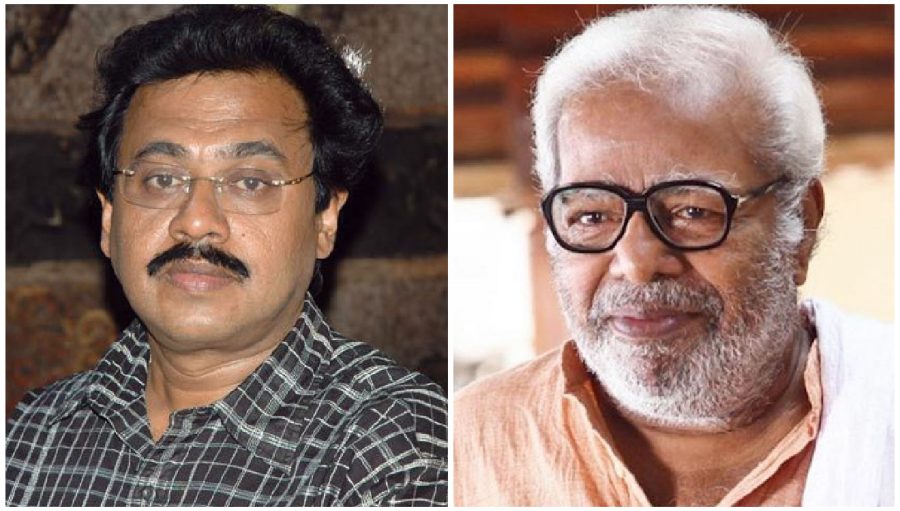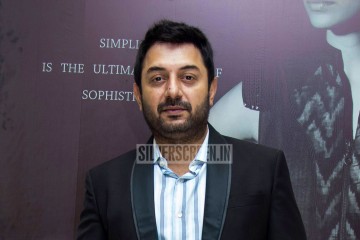Actors Siddique and KPAC Lailtha, on Monday afternoon, held an exclusive press meet for television channels in Malayalam, where they lashed out at the WCC (Women In Cinema Collective) for a range of ‘offenses’ including ‘insulting Mohanlal’.
The press meet was, evidently, a knee-jerk reaction to the concerns raised by WCC members in Kochi on Sunday when they slammed AMMA for protecting Dileep, one of the main accused in a controversial sexual harassment case involving an actress. WCC members said that in addition to AMMA refusing to oust Dileep from the fold, the leaders of film unions in Kerala were announcing projects with him while across the world, actors were backing out of projects with those accused in sexual harassment cases.
In response, Siddique said, “Do they mean to say Dileep should never work? How can a film union deny a person’s right to work?” He also said that the policy adopted by Bollywood actors such as Aamir Khan and Akshay Kumar to not collaborate with people accused of sexual harassment, was wrong. “How can they do that based on ‘random’ allegations by women?” he asked.
While this statement reveals how Siddique, like the patriarchal film industry he works in, undermines an important issue like sexual harassment, and continues to disbelieve and discredit women when they speak up, history presents facts that are in direct contrast to it. The unions in Malayalam film industry, AMMA and FEFKA, have several times in the past, worked hand in glove to stall film productions, ban artistes and deny work opportunities to several people. These ‘bans’, termed as ‘disciplinary actions’, were used by powerful members to oppress or corner their rivals in the industry.
The most well-known case in this matter was filed and later won by filmmaker Vinayan, and involved actor Thilakan.
Incidentally, it was Dileep who triggered the long-standing rivalry between Vinayan and the film unions. In 2008, Vinayan, the then head of MACTA, imposed a fine on Dileep for violating a film contract that he had signed with director Thulasidas. The issue snowballed into the dissolution of MACTA and the formation of FEFKA. In 2014, Vinayan filed a case with the commission alleging that AMMA and FEFKA had tried to force various actors, technicians, producers and financiers, to not work or associate with him in any of his projects. Also, these associations had imposed a ban on those who worked with him, by issuing circulars and show cause notices.
After conducting an investigation in the case, the competition commission ruled in favour of Vinayan in 2017, and ordered actors Innocent and Idavela Babu, the then leaders of AMMA, to pay a penalty of Rs 51,478 and Rs 19,113 respectively, apart from imposing a penalty of Rs 66,356 on Sibi Malayil, Rs 32,026 on B Unnikrishnan and a penalty of Rs 27,737 on K Mohanan, who headed FEFKA.
The commission, in its findings, said that AMMA had clearly tried to stop Vinayan from making films. At an executive committee meeting of AMMA held on April 5, 2010, it was decided to remove late actor Thilakan from Christian Brothers, a multi-starrer film directed by Joshiy, on the direction of the FEFKA leadership. His crime was that he had acted in Vinayan’s Yakshiyum Njanum. Thilakan’s role in Christian Brothers was later done by Sai Kumar. Also, at a general meeting held on June 27, 2010, late Captain Raju, an actor, was asked to explain why he had ‘violated the instructions of AMMA’ and acted in Vinayan’s film.
In an interview to Asianet News, Thilakan had elaborated on the misdeeds of AMMA. “It’s not just my constitutional right, but my birth right to work and earn a living. If any organisation tries to deny an individual’s right to work, we should destroy that organisation. It will be ultimately destroyed,” he had said. “Sudhir, the producer, should call me back to Christian Brothers. I have the advance that you handed over to me. I will go to court.”
“The cinematographer who worked on Chinthamani Kola Case was hired to work in Vinayan’s film. After day one, he quit because he was asked to. The wind propellers brought from Chennai had to be sent back. They did everything to stall the shoot,” Thilakan said, adding that he would do everything to oust AMMA and FEFKA from the industry.
“The South Indian Film Chamber of Commerce was sent a letter by FEFKA which said that Thilakan and other artistes (who associated with Vinayan) should be banned,” he’d revealed, and went on to add that it was a superstar who was behind it. In the interview, he also criticized the fan culture encouraged by superstars in the industry. He then spoke about the general body meeting of AMMA where there was a discussion to oust Thilakan from the industry. “I wasn’t informed about the meeting and I wasn’t sent the minutes of the meeting.”
In the investigation conducted by the competition commission, it was also found that a number of producers like PA Harris had to back out of projects with Vinayan after AMMA interfered through informal phone calls. Actor Jayasurya, who is now the treasurer of AMMA, had then deposed to the commission that an informal ban had been imposed by film unions on any artiste working with Vinayan. He also confirmed to the commission that he had received a call in 2013 from filmmaker B Unnikrishnan, now the head of FEFKA, and filmmaker Sibi Malayil, who advised him against working with Vinayan.
In an interview with The Hindu in 2015, while speaking about the demise of actor Mala Aravindan, Vinayan recalled how the comedian was denied his means to livelihood. “AMMA leadership had then (in 2014) asked him not to act in my movie. But he had the guts to defy their directive and acted in the film. He was banned for nearly a year.” Vinayan also mentioned that AMMA had asked Aravindan to submit a letter stating that he would not act in Vinayan’s movies.
Recommended
In a recent interview to Manorama News, Shammi Thilakan, actor-dubbing artiste and son of Thilakan, said that he was denied the opportunity to work. “Mukesh had asked to return the advance that I had taken from Vinayan. I had deposed this in front of the competition commission (of India) too. It’s not a secret,” said Shammi. “When I say ban or threat, it’s not an official letter that I am talking about. Threats come informally, as a word of caution from influential people that they could turn our future dark. Mukesh spoke to me like an affectionate senior, and I had to yield to it,” he said.
When Silverscreen.in contacted Vinayan, he said he had nothing more to say other than what Shammi Thilakan said in the television interview.
Read the findings of Competition Commission Of India here.
*****



